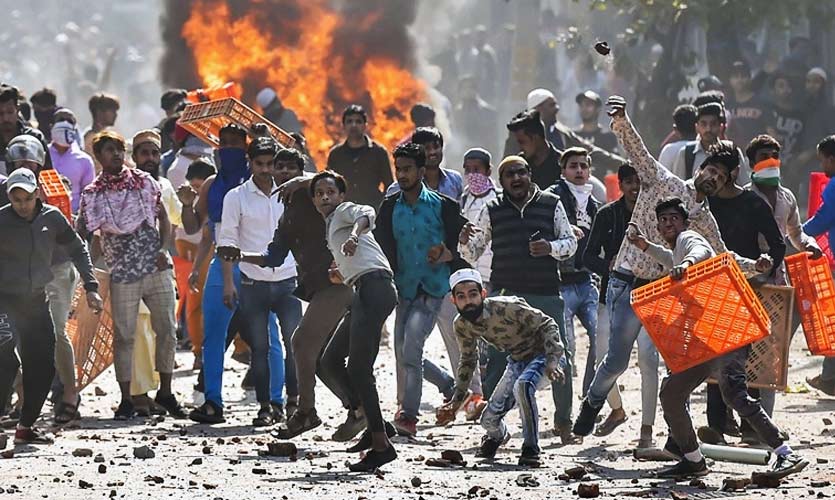Following the historical trend of public leaders making controversial remarks, Samajwadi Party’s five-time Member of Parliament – Sambhal Shafiqur Rahman Barq – has been booked on sedition charges over his remarks on the Taliban’s takeover of Afghanistan. Allegedly, Barq was booked for equating the Afghanistan crisis with the Indian freedom movement against British rule.
On August 16, 2021, responding to reporters, Barq purportedly justified the Taliban’s takeover by stating that they wanted to run Afghanistan as per their will. Linking it to the Indian freedom movement, he noted that when India was fighting for independence, the entire nation came together to fight against British rule. He said that the Taliban, similarly, want to free their country, which was earlier ruled by Russia and until recently, the United States.
The police filed the FIR against Barq under the Indian Penal Code’s Section 124A (sedition), following a complaint from Rajesh Singhal – reportedly a BJP leader, but described as a private person by the police. In his complaint, Singhal noted that the Samajwadi Party leader’s “controversial statement comes in the category of sedition”. Barq has also been charged under Section 153A (promoting enmity between different groups on grounds of religion, race, place of birth, residence, language) and Section 295A (deliberate and malicious acts, intended to outrage religious feelings of any class by insulting its religion or religious beliefs).
Later, on August 18, 2021, Barq refuted the allegations leveled against him and claimed that he had been quoted out of context. Reportedly, Barq stated that he has nothing to do with the insurgent group and is entirely supportive of the policies of India. He also refused to have praised the Taliban in any comment and stated that he is only concerned about India and its politics. Noteworthy, today, as reported by ABP News, Barq’s son – Mamlukur Rahman Barq – congratulated the Taliban and said that the group was not at fault in any way.
This is not an isolated event, where a political leader or public figure of a stature misspoke or has given a controversial or provoking remark. While the remarks can often be carelessly delivered or taken out of context, the impact of them on the followers of the leaders has at many instances been nefarious. In this instance, after Barq’s remark, two Samajwadi Party workers – Mohammad Muqueem and Chaudhary Faizan – posted content in support of the Taliban on social media, and have been booked under the same sections as Barq.
Read more: Six People Arrested For Chanting Anti-Muslim Slogans At Jantar Mantar
Past Instances Where Comments Of Public Leaders Have Led To Mass Outrage
BJP leader Kapil Mishra, on February 23, 2020, publicly spoke in a rally, issuing an ultimatum to the anti-CAA protestors camping at Jaffrabad and Chand Bagh areas of Delhi. In his aggressive speech, Mishra asked the protestors to end their agitation in three days, and threatened to take matters in his own hand and “not remain peaceful”. Reportedly, Mishra’s aggression was to intimidate the police officials to engage with the anti-CAA protestors and to remove them.
Within hours after Mishra’s speech, violent clashes broke out between the opponents and supporters of the CAA, and as many as 53 people were killed, while many others were injured. Several activists, politicians and the relatives of the people who lost lives blame Mishra for inciting the violence. The police refuted Mishra’s role in it. Till date, Mishra stands by his comments and has on record claimed to deliver a similar speech again if required.
Another BJP leader, Parvesh Verma’s communal remarks during the Delhi Assembly elections 2020 fuelled hate and Islamophobia, which is also considered as a major boost for the North East Delhi riots. Allegedly, referring to the anti-CAA protestors, Verma said, “These people will enter your houses, rape your sisters and daughters, kill them.”
BJP cabinet minister and Member of Parliament in the Lok Sabha from Hamirpur, Himachal Pradesh – Anurag Thakur – was accused of having incited communal tension in Delhi during the 2019 general elections. Reportedly, Thakur delivered a hate speech in which he and his followers chanted that the traitors of the country should be shot. However, Thakur maintains that it was his followers who chanted about shooting and not him.
Assam’s Chief Minister Himanta Biswa Sarma had created much communal hue when he asserted that the government will once again prepare for NRC if the BJP government comes to power in Assam in 2021. “The defeat of Mughals couldn’t be attained during preparation of NRC,” said Mishra.
There are several other instances where speeches or comments by public leaders have created tension and lead to mass outrage, including. Karnataka MP Tejasvi Surya has said, “Control of state power by Hindus is absolutely essential.” Uttar Pradesh Chief Minister Yogi Adityanath has reportedly threatened Muslims to “mend their ways”, and West Bengal Chief Minister Mamata Banerjee was recorded using “insinuating and provocative remarks” during the 2021 elections. Amit Shah’s comments on Shaheen Bagh protestors, TMC MP Tapas Pal’s statement threatening to send party workers to rape CPM women, and many others comprise a long list of such examples.
While most leaders later apologise or claim to have been quoted out of context, the impact of their statements leave a deep mark on their followers, leading to the spread of mass outrage and hatred within the society.










